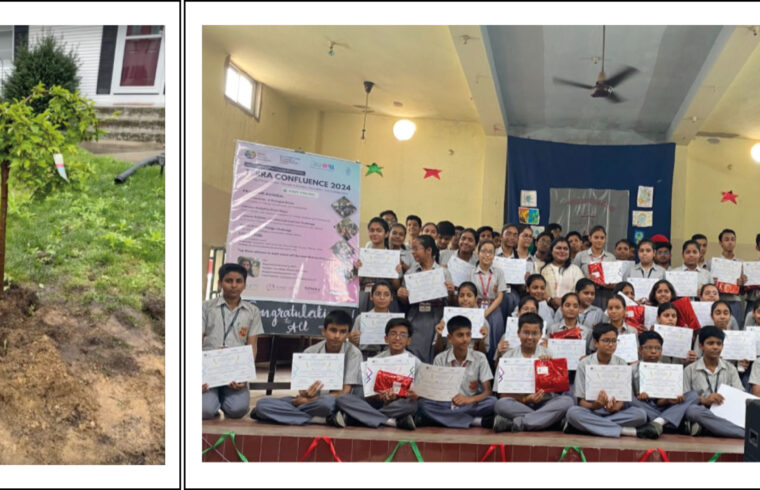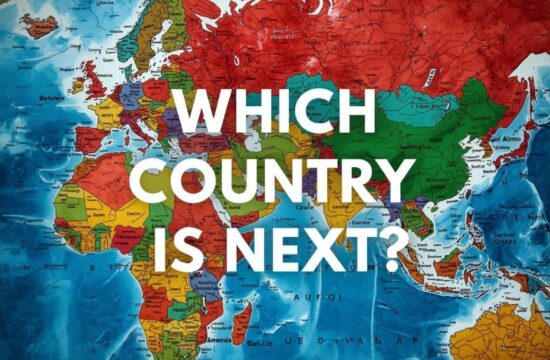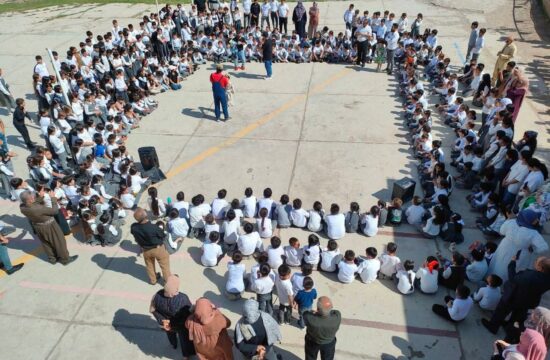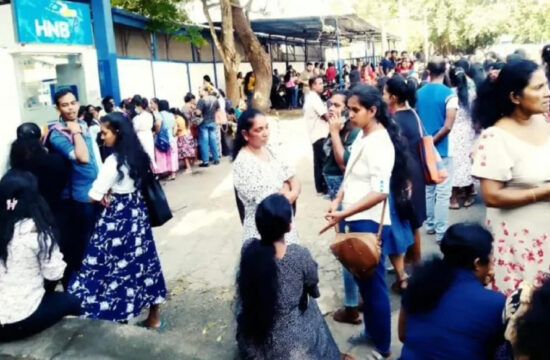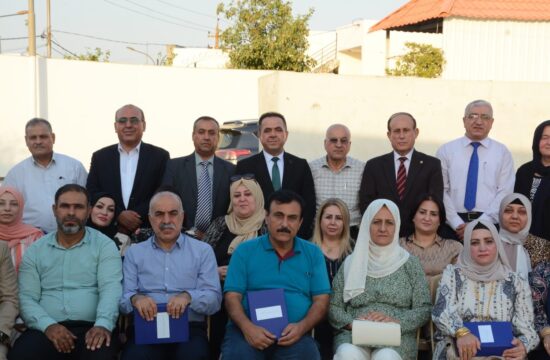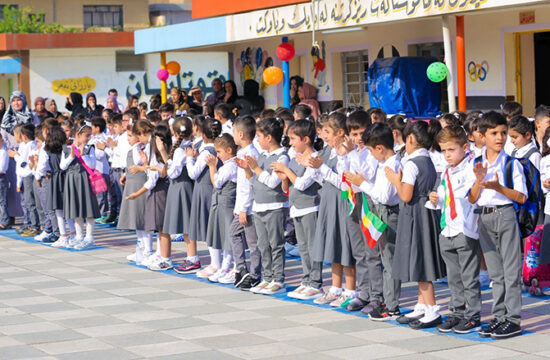Poulomi Chakravarty, Sai Gattupalli, and Robert Maloy
In the wake of UN Secretary-General Antonio Guterres’ stark characterization of our era as one of “global boiling”, the imperative for transformative action in climate education and environmental stewardship has never been more pressing. Terra Confluence 2024, spearheaded by the Global Climate Association (GCA), in collaboration with HerWill and the University of Massachusetts Amherst, emerged as a pioneering literacy initiative designed to address this urgent need. This innovative symposium united a diverse cohort of experts, enthusiasts, and community stakeholders in a collaborative effort to catalyze dialogue and inspire concrete action towards climate resilience and environmental sustainability.
Conceptual Framework and Objectives
Terra Confluence 2024 embodies a powerful vision of global unity in environmental stewardship. The name itself—combining “Terra” (Earth) and “Confluence” (coming together)—encapsulates the event’s mission to unite diverse global efforts in planetary care. Conceived as a transformative climate literacy initiative, Terra Confluence aligns strategically with UN Sustainable Development Goals 4 (Quality Education), 13 (Climate Action), and 17 (Partnerships for the Goals). Held during the week of Earth Day 2024, this timing symbolically reinforced the event’s commitment to global environmental awareness and action. The initiative’s primary aim was to bridge the critical gap between climate knowledge and tangible action through an innovative, hybrid format. By combining localized in-person gatherings, such as those at a high school in Patna, India, with global online participation via Zoom, Terra Confluence created a truly inclusive platform. This approach brought together 139 diverse participants, spanning from young elementary students to experienced university professors, fostering an intergenerational and cross-disciplinary ecosystem for knowledge exchange and collaborative problem-solving. At its core, Terra Confluence 2024 sought to enhance climate data literacy, stimulate innovative thinking on environmental challenges, and inspire concrete, locally-relevant climate actions. By uniting such varied perspectives and expertise, the event aimed to catalyze the development of a new generation of climate-conscious individuals, equipping them with the tools, knowledge, and networks needed to drive sustainable change in their local communities and on a global scale.
Standard Tracks
The event featured four interconnected educational tracks, each tailored to specific demographics and competency levels in climate literacy:
- The Climate Conundrum Challenge: Targeting secondary education students (Grades 6-9), this track employed scenario-based learning methodologies to elucidate localized climate change and environmental issues. This constructivist approach facilitated the comprehension of complex climate systems, fostering critical thinking and the development of innovative mitigation strategies.
- The Climate Data Analytics Showdown: Designed for tertiary-level students and beyond, this track focused on enhancing meteorological and micrometeorological data literacy. Participants engaged with empirical open access datasets, honing their skills in data acquisition, analysis, interpretation, and visualization.
- The Planet Prosper Pledge: This intergenerational initiative leveraged digital storytelling as a means of promoting environmental commitment. This track is open to all ages, and underscored the significance of individual agency in advancing sustainable development through personal narratives in short video clips under 60 seconds.
- Terra Torrent Dialogue Series: This multidisciplinary expert panel facilitated knowledge exchange on diverse topics, from sustainable entrepreneurship to environmental jurisprudence, enriching participants’ understanding of the multifaceted nature of environmental challenges.
Global Collaboration and Cross-Cultural Engagement
The initiative’s global scope necessitated an innovative approach to cross-cultural engagement in educational methodology. Learning sciences researchers developed a framework focused on identifying key areas for improvement in climate education across diverse cultural contexts. This approach addressed the evolving landscape of education, where traditional pedagogies are being challenged by emerging technologies and global interconnectedness.
Central to this methodology was the concept of “glocalization”—the creation of tailored learning scenarios that aligned with local curricular standards while addressing global climate issues. This approach facilitated the generation of culturally-relevant educational materials, enhancing the relevance and impact of the learning experience for participants from various socio-economic, ethnic, cultural backgrounds.
Key Outcomes and Participant Feedback
Assessment and Outcomes
Terra Confluence 2024 achieved significant positive outcomes across multiple areas of climate education and engagement. Here’s what we learned from examining the event’s effectiveness based on participant feedback (n=139), providing insights into the pedagogical outcomes and participant engagement:
- Data Analysis Skills: 65% of participants felt confident in using data to analyze environmental issues. This shows that our focus on data-driven learning was effective.
- Enjoyment of Collaboration: A remarkable 79% of participants greatly enjoyed working together on climate projects. This highlights the success of our collaborative learning approach.
- Future Application of Knowledge: 70% of participants plan to use what they learned in their future careers or daily lives. This indicates that the event content was relevant and practical.
- Comfort with Climate Data: 58% of participants felt very comfortable interpreting different types of climate data presentations. This represents a significant improvement in climate data literacy.
- Innovation in Climate Projects: 70% of participants believed they could often or always be innovative when working on climate-related projects. This suggests the event encouraged creative thinking about climate solutions.
Terra Confluence 2024 participants’ diversity: On the left, 4-year-old Yangsal Bodnar from the USA, winner of the elementary category short video clip competition, planting a tree. On the right, in-person attendees gathered at the partner high school in Patna, India, displaying their certificates. Top 10 performers also received climate and environmental books as prizes.
Ten outstanding submissions, selected based on a standardized rubric and evaluated by a panel of judges, were awarded climate and environmental books along with certificates of participation. This recognition highlights the exceptional quality of work produced by participants and encourages continued engagement in climate action.
Terra Confluence 2024 has not only set a new standard for climate education events but has also paved the way for a transformative approach to environmental engagement. By successfully bridging the gap between climate knowledge and meaningful action, this initiative demonstrates the power of innovative, collaborative, and data-driven learning experiences.
The event’s success lies in its ability to:
- Empower participants with practical data analysis skills
- Foster a collaborative environment that mirrors real-world problem-solving scenarios
- Ensure the relevance and applicability of knowledge to participants’ lives and careers
- Enhance climate data literacy, a crucial skill in today’s information-rich world
- Encourage innovative thinking in addressing complex climate challenges
These achievements underscore the potential of well-designed educational interventions in cultivating a generation of climate-conscious individuals equipped to drive sustainable change. As we face increasingly complex environmental challenges, initiatives like Terra Confluence serve as beacons of hope and action. Event organizers extend their thanks to modern technology for enabling and facilitating the event.
We invite educators, policymakers, and climate enthusiasts to explore this groundbreaking approach and consider its applications in their own contexts. To learn more about Terra Confluence and its methodologies, visit https://tc2024.globalclimateassociation.org/. Together, we can amplify these efforts and create a global movement of informed, engaged citizens ready to tackle the climate crisis head-on.

